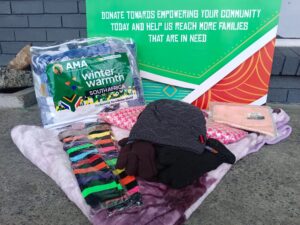
[Businesstech]
Less affluent communities are targeted as syndicates have realised that lower-income earners make for easy targets and do not draw media attention, says a report in Businesstech.
Kidnapping for ransom and extortion is increasing in South Africa, with lower- and middle-income individuals being targeted by organised kidnapping syndicates who have expanded their focus beyond high-profile executives.
This trend has become so prevalent that it has given rise to a whole new arm of insurance products that aim to cover families who are at risk.
The latest quarterly stats from the South African Police Service (SAPS) show that kidnappings increased by 10.2% year-on-year from 3,306 cases in Q1 2022 to 3,641 in Q1 2023.
However, this number could be doubled, as many kidnapping incidents are not reported to the SAPS when families of kidnapped victims are told not to do so.
Previous research has shown that kidnapping is growing into a crisis in South Africa, with the targets and perpetrators varied.
The crime is typically associated with syndicates or gangs, and the victims have usually been highly profiled high net worth individuals or businesspeople, or within communities and foreign national demographics.
However, insurers – which have seen opportunity in the escalation – are now noting that almost everyone in the country could be a victim.
“Kidnappings have become a prevalent source of income for syndicates as they prey on individuals who have access to cash. In most instances, the victim has been profiled as to their worth or the family’s worth and the kidnappers ask for an amount they know they can get,” said Hermanus van der Linde, CEO of IntegriSure Brokers.
In the midst of a tough economic climate, criminals are now no longer targeting wealthy individuals, with syndicates now targeting middle-class individuals with the means of a support network to raise smaller ransom amounts.
Notably, a new trend has been seen where the victim is held hostage for roughly a week before any communication is made in regard to a ransom. At this point, the family is so desperate that they pay whatever is asked.
“Less affluent communities are targeted as syndicates have come to realise thatlow-income earners make for easy targets and do not draw media attention,” van der Linde said.
For instance, a 65-year-old man was recently kidnapped in Limpopo, leading to a nearly month-long investigation and his rescue by the Hawks. However, for every higher-profile case that makes the news, many more incidents take place with the wider public none the wiser.
The increased prevalence of kidnappings in the country has given rise to a whole new insurance market, which is now evolving to cover various complexities involved with the crime.
While kidnapping insurance isn’t entirely new, it is something companies would typically acquire to insure their executives against kidnapping and extortion when travelling to high-risk countries. However, that threat now extends to entire families who are at risk of being kidnapped.
There are, thus, now several products that offer protection against kidnapping, extortion, and hijacking, which can also include an individual’s family.
Several insurance products now also include access to “response consultants” on top of monetary coverage for a ransom. They have also expanded to cover the costs involved with resolving a kidnapping or even go as far as covering some medical expenses like cosmetic surgery.
However, most of this type of cover is squarely out of reach for the demographics now being targeted.
Van der Linde added that the escalation in the number of kidnappings could see the trend surpass cash-in-transit heists in popularity, as kidnappings don’t require gunfire, don’t create a scene, and negotiations for extortion are covert. – Businesstech.


